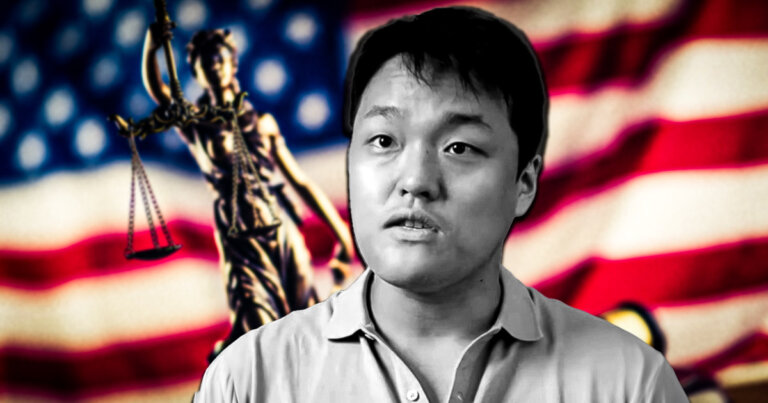 Montenegro high court greenlights Do Kwon’s extradition to US
Montenegro high court greenlights Do Kwon’s extradition to US Montenegro high court greenlights Do Kwon’s extradition to US
The timeline for his extradition is unclear and could take several weeks or months to finalize.

Cover art/illustration via CryptoSlate. Image includes combined content which may include AI-generated content.
Montenegro’s High Court has decided to extradite former crypto magnate Do Kwon to the US instead of his home country, South Korea, local media reported on Feb. 21.
The decision marks a pivotal turn in the international legal saga surrounding Kwon, the founder of Terraform Labs, who faces charges related to financial crimes in both countries. The timeline for his extradition is unclear and could take several weeks or months to finalize.
Extradition processes can vary in length and complexity, depending on the legal frameworks, the cooperation between the involved countries, and any potential appeals or further legal actions that might be taken by the parties involved.
Given the high-profile nature of Kwon’s case and the involvement of multiple jurisdictions, it’s likely that the extradition process will be closely monitored and subject to strict procedures to ensure its legality and fairness.
Political considerations
The appellate court had previously directed the High Court to determine whether Kwon would be extradited to South Korea or the US, as both states had made official requests. While initial rulings confirmed the eligibility for Kwon’s extradition, the decision on where to send him was left to Justice Minister Andrej Milović.
However, the appellate court later overturned the ruling and clarified that the Justice Minister’s decision-making role only applies in regular extradition proceedings. Since Kwon consented to extradition in a fast-track process, the final decision fell to the court.
Kwon’s defense, led by attorney Goran Rodić, had argued for his client’s extradition to South Korea based on legal grounds, including the European Extradition Convention, a bilateral agreement with America, and Montenegro’s law on international legal assistance.
Despite these arguments, the court has decided to extradite Kwon to the US, reflecting deeper political considerations, as Milović previously stated that the US is Montenegro’s main foreign policy partner.
Fake documents
The saga began when Kwon and his associate Han Chang Jun were arrested in March last year at Podgorica Airport, attempting to fly to Dubai with fake Costa Rican passports.
Further investigation revealed they also possessed Belgian travel documents, which they claimed to have obtained through an agency in Singapore for global travel.
During the court proceedings in Podgorica, Kwon explained that the Belgian passports had incorrect names and birthdates, so they opted to use the Costa Rican passports to travel instead.
Kwon further claimed that he was unaware that the Costa Rican passports were fake as the issuing agency had seemed legitimate.
He said his trust in the issuing agency was based on previous successful applications, including a denied request for Grenada passports but an approved one for Costa Rica, which built their confidence in the agency’s reliability.



 CryptoQuant
CryptoQuant 


















































































